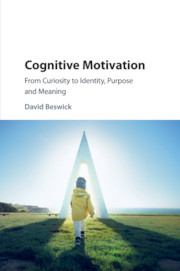Crossref Citations
This Book has been
cited by the following publications. This list is generated based on data provided by Crossref.
Baumeister, Roy F.
Maranges, Heather M.
and
Vohs, Kathleen D.
2018.
Human Self as Information Agent: Functioning in a Social Environment Based on Shared Meanings.
Review of General Psychology,
Vol. 22,
Issue. 1,
p.
36.
Urbański, Florian
2019.
Corporate Social Responsibility in Poland.
p.
253.
Zhang, Mary F.
and
Gordon, David
2020.
The Cambridge Handbook of the International Psychology of Women.
p.
390.
2020.
The Cambridge Handbook of the International Psychology of Women.
p.
373.
Sadler, Wendy J.
2021.
Evaluating the short-term and long-term impact of an interactive science show.
Research for All,
Vol. 5,
Issue. 2,
UTEUBAYEVA, Elmira
2021.
Conceptual Framework for Teaching Professional Foreign Language (Case of LSP for Law): For Universities Studying English.
SSRN Electronic Journal ,
Magrì, Elisa
2021.
Towards a phenomenological account of social sensitivity.
Phenomenology and the Cognitive Sciences,
Vol. 20,
Issue. 4,
p.
635.
Tiong, Ngee Derk
2023.
Negotiating frame disputes in teacher discourse: vignettes of accountability and opportunities for learning.
Professional Development in Education,
Vol. 49,
Issue. 4,
p.
765.
Černikovaitė, Miglė Eleonora
and
Mitkutė, Meda
2023.
Expression of Identity in Tattoos of Symbols of Different Cultures.
Information & Media,
Vol. 96,
Issue. ,
p.
53.
Mohammed, Mohammed
Fatemah, Amal
and
Hassan, Lobna
2024.
Effects of Gamification on Motivations of Elementary School Students: An Action Research Field Experiment.
Simulation & Gaming,
Atchia, Shakeel Mohammad Cassam
and
Gunowa, Moshimee
2024.
Use of concept cartoons within the conceptual change model to address students’ misconceptions in biology: a case study.
Journal of Biological Education,
p.
1.





